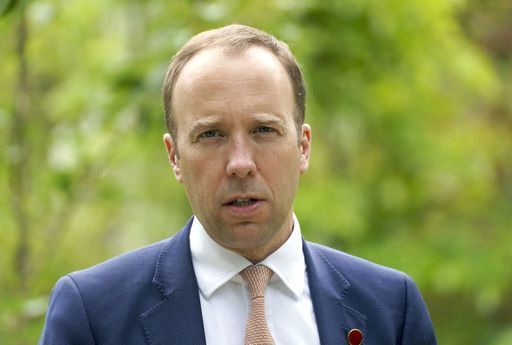Having read thousands of Matt Hancock’s messages, I can see why he doesn’t want this discussions to become public. It’s embarrassingly clear that no one on that WhatsApp thread ever thought they’d be scrutinised by the rest of the cabinet, let alone parliament, let alone the rest of the country. They had all thought the official Covid inquiry would serve as a device of cover-up, kicking this all into the long grass at least until after the general election.
Hancock says Isabel Oakeshott abused his trust by taking the material he gave her to ghostwrite his diary and putting it into the public domain. I have no idea what the two of them agreed, but I’m not sure it matters given the balance of public interest. I have yet to see any journalist argue that – in the same situation – they would have kept all of these files secret. Yes, it would have been a very difficult choice. But who is arguing that she made the wrong choice?
‘There is absolutely no public interest case for this huge breach,’ says Hancock. He’s dead wrong
Well, there is one person. ‘There is absolutely no public interest case for this huge breach,’ says Hancock. ‘All the materials for the book have already been made available to the Inquiry, which is the right, and only, place for everything to be considered properly and the right lessons to be learned.’ He’s dead wrong.
The Swine Flu Inquiry was over in weeks: rightly so, in pandemic planning there’s no time to lose in learning lessons. The official Covid inquiry has no deadline and could take years. It seems to have as its main remit going slow, thereby providing a shield to hide behind – so no politician has to answer any questions on the pandemic until after the general election. As we say in the leading article of today’s magazine, this may be in the Tory party’s interest (Sunak knows better than most what horrors it will uncover) but it’s not in the national interest.
The decisions made on WhatsApp by Hancock and his fellow ministers decided the fate and liberty of millions: I cannot think of a recent story where there has been a larger public interest in full disclosure. If you’re a parent whose children were told to wear masks in corridors because ministers follow the best scientific and medical advice, there is a clear public interest in knowing that this ‘advice’ was political – about not wanting to be outshone by Nicola Sturgeon. Chris Whitty was asked: whats the science?
If you’re parent of a large family effectively grounded because the ‘rule of six’ was imposed on the under-12s – when it was not in Wales or Scotland – there is a clear public interest in knowing that the government knew there was no ‘robust rationale’ for including children but backed the controversial policy regardless, keeping thousands of children apart from their friends and grandparents. There is such a thing as the public’s right to know: Hancock seems oblivious to this now, just as he was then.
Hancock will also know – because he does, of course, have all the messages – that these stories are just the start. The role of journalism in a democracy is to cast light where politicians would prefer there to be darkness (or the half-light of a tardy official inquiry). The Daily Telegraph is throwing open the windows to now see the logic and the forces that shaped all of their lives. I’ve sat in the secret room with the Telegraph team who went over it all time and time again to make sure what they published had the full context. So I don’t think Hancock will get anywhere with his claims that the conversations have been maliciously edited: he can publish anything himself if he genuinely thinks he has been misquoted.
He is right to say that there is a major limitation to the ‘Lockdown Files’: they show lockdown from the perspective of just one man (and all the conversations he was involved in) and there will be other perspectives that we have not seen. That’s why we can do with them being published, and straight away. Keeping them private will spare the blushes of a few politicians and advisers. But making them public will allow the transparency, debate and lesson-learning that you’d expect in a democracy. What reason is there, really, for keeping everyone in the dark even now?
Rarely do journalists have the opportunity to put entire conversations into the public domain and offer enough material to start vital conversations that ministers would rather avoid. This isn’t exposing anyone’s private life: this is about how we are governed. And how we can learn from mistakes to better protect society next time. The Daily Telegraph has started a process that government cannot stop: that should be obvious now. If they think context is missing, then they can add it. But they should – and, now, cannot – prevent those affected by the lockdowns from getting the answers they so richly deserve.







Comments